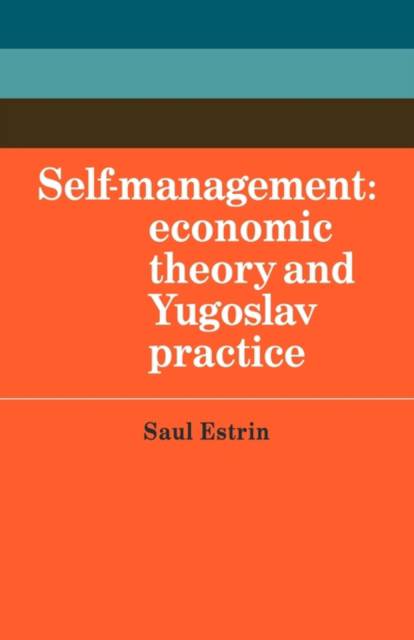
- Afhalen na 1 uur in een winkel met voorraad
- Gratis thuislevering in België vanaf € 30
- Ruim aanbod met 7 miljoen producten
- Afhalen na 1 uur in een winkel met voorraad
- Gratis thuislevering in België vanaf € 30
- Ruim aanbod met 7 miljoen producten
Zoeken
Omschrijving
The subject of self-management - of companies in which the decisions are made by the work force rather than by the managers or owners - has long been of interest both to economists and to a wider audience. In this 1984 book Saul Estrin offers a comprehensive survey of how workers' self-management has influenced industrial structure and the allocation of resources in Yugoslavia, where a system of this type has operated since the 1950s. The book will interest economists concerned with the likely impact of workers' participation as well as specialists in self-management theory and the operation of the Yugoslav economy.
Specificaties
Betrokkenen
- Auteur(s):
- Uitgeverij:
Inhoud
- Aantal bladzijden:
- 278
- Taal:
- Engels
- Reeks:
- Reeksnummer:
- nr. 40
Eigenschappen
- Productcode (EAN):
- 9780521143837
- Verschijningsdatum:
- 24/06/2010
- Uitvoering:
- Paperback
- Formaat:
- Trade paperback (VS)
- Afmetingen:
- 140 mm x 216 mm
- Gewicht:
- 353 g

Alleen bij Standaard Boekhandel
+ 121 punten op je klantenkaart van Standaard Boekhandel
Beoordelingen
We publiceren alleen reviews die voldoen aan de voorwaarden voor reviews. Bekijk onze voorwaarden voor reviews.











